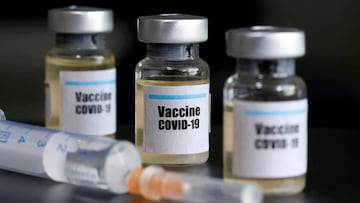Coronavirus could go away before vaccine is ready
There are over 4.7 million confirmed coronavirus cases worldwide and over 300,000 deaths, and an expert from the WHO has said the virus could "burn out" naturally.

Professor Karol Sikora, former director of the World Health Organization (WHO) Cancer Programme, has revealed that the coronavirus ‘could burn out naturally’ before a vaccine is developed something that had been stated before by U.S. president Donald Trump.
Coronavirus could "burn out"
The confirmed Covid-19 cases sit at over four million worldwide and although scientists in the United States first started clinical trials at the beginning of March, they have said that a vaccine is unlikely to be ready before early next year. Meanwhile in Oxford they are already working on a human vaccine trial.
There is a real chance that the virus will burn out naturally before any vaccine is developed.
— Professor Karol Sikora (@ProfKarolSikora) May 16, 2020
We are seeing a roughly similar pattern everywhere - I suspect we have more immunity than estimated.
We need to keep slowing the virus, but it could be petering out by itself.
Scientists around the world have been working on finding a cure for the virus that has ravaged the world, and one tweeted over the weekend that it could just go away naturally by the end of 2020. “There is a real chance that the virus will burn out naturally before any vaccine is developed. I suspect we have more immunity than estimated,” wrote professor Karol Sikora.
Trump said vaccine will be ready this year
Related stories
As the United States reopens its economy, President Trump tweeted on 14 May that the vaccine will be ready by the end of the present year. Trump’s statement did not go hand-in-hand with what health experts have said in the past because for the vaccine to be ready there has to be strongent testing and FDA approval before it can be used on the wider public.
"I think it’s possible you could see a vaccine in people’s arms next year, by the middle or end of next year. But this is unprecedented, so it’s hard to predict,” said Dr. Paul Offit, a professor at the Perelman School of Medicine at the University of Pennsylvania and the director of the Vaccine Education Center at Children's Hospital of Philadelphia
